Perhaps the first ever song recorded at the Beatles’ Apple Studio in Savile Row was a garage rock song called ‘Permissive Paradise’. It was performed by The Iveys and written by Jeremy Cox. The song was sold as a flexi-disc to promote the book Young London – Permissive Paradise by Frank Habicht.
Here is the song – I’ve tried to clean up the recording, but it does have a bit of distortion and hiss, which is actually part of the story…
This is the tale of how a junior designer at a stuffy old publishing house ended up making a recording at the fab four’s new HQ, with the band that became Badfinger. And it was feasibly done before the Beatles ever attempted to use the location for their own recording.
The publishing employee is my dad, Jeremy Cox, and his tale of bunging money into the right hands to get his way into The Beatles brand-new studio in Savile Row, and of hurriedly playing the piano as John Lennon marched unexpectedly in (so as to appear to be a legitimate studio musician), is legendary in our family – but until now it’s never been set down in writing. It starts, surprisingly enough, at French dictionary publisher Harrap.
The unusual book
Harrap were a fairly formal publishing company. Apart from dictionaries, at this time they were also publishing titles such as Questions and Answers for Motor Vehicle Mechanics and A History of the Zinc Smelting Industry in Britain.
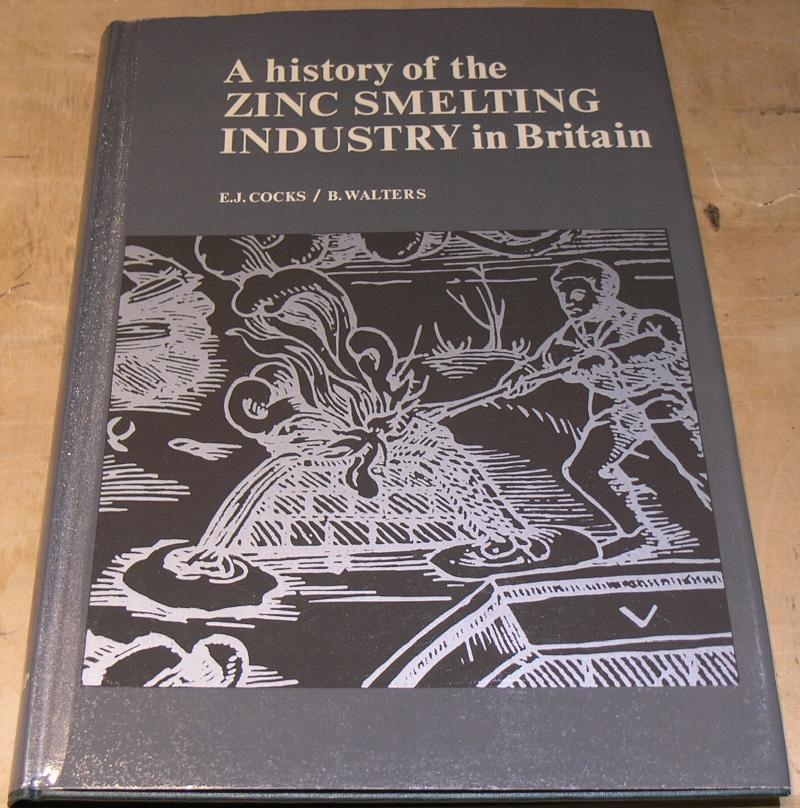
However, for some reason they also decided to publish Young London: Permissive Paradise, a book of often raunchy pics of Sixties ‘dolly birds’, famous figures and various painfully fashionable London youths, by German-born photographer Frank Habicht.
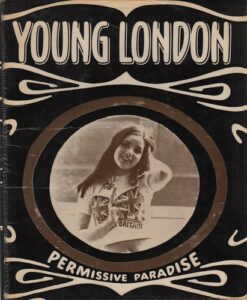
As Jeremy says, “It came about out of the blue really. Somebody there had this idea. And it was I was really in the educational publicity department, so it was an oddity for this thing to turn up.”
Being in his early 20s, Jeremy was glad to take this opportunity to promote something other than a dictionary, so with his colleague and friend John Sidey, he cooked up an appropriately groovy plan to launch the book.
There would be a launch event, of course – they decided to get an old Parisian bus filled with attractive models and a couple of on-trend celebrities. When this event came about, The Kensington Post rather jadedly reported that, ‘the author of yet another record of Swinging London’, local resident Frank Habicht…
…launched his ‘Young London Permissive Paradise’ picture record with a ‘happening’ in Chelsea’s Kings Road. Special guests were Simon Dee and Emperor Rosko. A collection of London dollies arrived in true Chelsea style on the top of an ancient Parisian bus and waylaid passers-by to pin “permissive society” badges on their innocent lapels. The luckier ones escaped the pin and were presented with a free record by Emperor Rosko to advertise the book.
Kensington Post, Friday 18 July 1969
And that free record was a flexi-disc – Jeremy’s idea, inspired by Private Eye’s regular cover flexis that had started in the mid-60s. Only this one would have appropriate music on one side, plus some spoken word content on the other.
Jeremy had been in a few small bands, and was more than happy to get musically creative for this project. In his Shepherd’s Bush flat he bashed out a rock song called ‘Permissive Paradise’ on his acoustic guitar. Then, in searching for a good – but not too expensive – band, he and John happened upon The Iveys.
The Ivey’s manager was Bill Collins, the father of The Professionals star Lewis Collins. Jeremy remembers him as being larger-than-life, an incongruous figure when visiting the old-world, scholarly Harrap offices.
Bill Collins offered Jeremy and John a deal – slip him a bit of cash (Jeremy thinks something like £50), and he will sort out both the band and the recording session. No questions asked. I assume that Mal Evans, who was close to the Iveys, was involved too – but as so many figures in this story are now passed away, it’s hard to know. The arrangement was certainly hush-hush, because they were going to use the Beatles brand-new Apple Studio without the band’s knowledge or consent.
And so, somewhat surreptitiously, The Iveys recorded the song at Apple Studio. They are billed on the disc as ‘The Pleasure Garden’, to further cover up the conspiracy. It was around this point that the most exciting moment for my dad Jeremy came about. After being sneaked into the studio to listen to a recording playback, someone suddenly called out, “John Lennon is coming! Do something!”
Jeremy knew a bit of boogie-woogie, so jumped over to the studio piano and started vamping – as Lennon brushed past him, ignoring him completely.
The Apple Studio timeline
As the documentary series The Beatles: Get Back details, The Beatles themselves tried to use the studio in January 1969. But after testing the equipment, it was realised that the setup was inadequate. Alexis Mardas aka ‘Magic Alex’ had been in charge of creating and assembling the tech, but his charming weirdness was much less appreciated when it came to the point of actually using his studio to record a high-quality LP.
This is one of the facts that suggests Permissive Paradise was recorded in the Autumn/Winter of 1968, before the Beatles tried anything there – and was produced with the infamous Magic Alex equipment, hence the rough quality of the song’s recording.
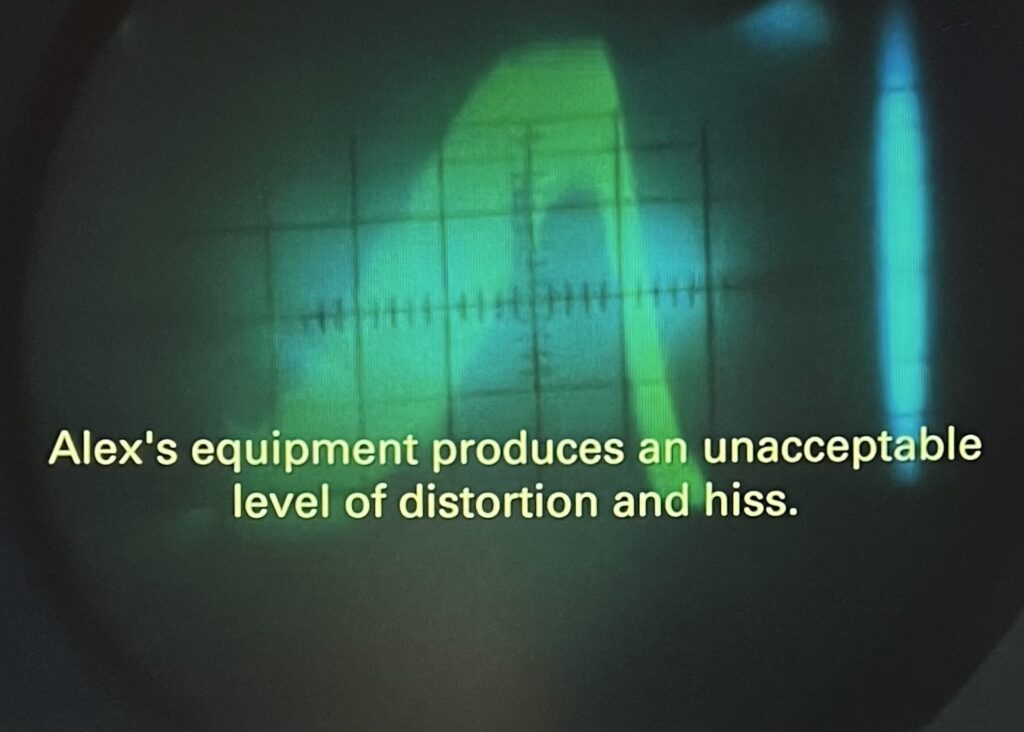
The Iveys had signed with Apple in April 1968. The band’s surviving member Ron Griffiths remembers using Apple’s Savile Row HQ as a rehearsal space from that point – the period during which Permissive Paradise was made.
I’ve spoken to Ron, and although his memory is – quite reasonably – a bit fuzzy, he thinks it’s “probably a very true statement” that Permissive Paradise was actually the first thing recorded in the building.
But if the book was launched in summer 1969, quite a while after the Let it Be sessions, can that be true? Well, the Permissive Paradise PR campaign was not a quick one. A Harrap letter to booksellers in May ’69 says “We have spent a great deal of time, thought, and money, in looking for the right means to promote YOUNG LONDON”. I’ve emphasised the word time here, as Harrap’s sales director Mr. Hills is at pains to emphasise how long the gestation for this launch has been. He sounds a bit tense about how much of a palaver it’s all been, saying “Please play this record”!
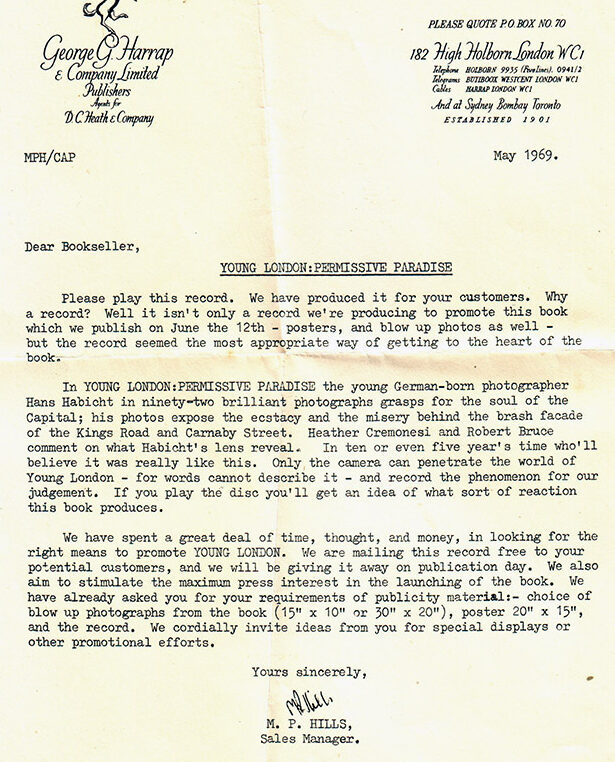
So even though the book launch period was May-July 1969 (naturally waiting on warm weather for the bus stunt), the recording may well have happened much earlier, preceding the Beatles’ Let It Be sessions. John Lennon’s visit could’ve been to drop in and check on ‘Magic Alex’s progress – then marching off thinking it sounded terrible, but luckily the band were going to do their next sessions in Twickenham…
Calling Beatles historians
Although my dad Jeremy, and Ron Griffiths of the Iveys, both think it was the first recording at Apple Studio, I’ve been trying to confirm the details one way or the other. I’ve not had any luck so far. It would be lovely to know more about my dad’s sweet, amusing place in Beatles history. So part of the reason for writing this is to find out if there are any Beatles obsessives, or even contemporaries who were involved, who can help piece together the timeline. If so, please get in touch! Email me@christophercox.co.uk
Side One
The song was actually Side Two of the disc. If you want to listen to Side One, here it is. It’s not as easy to dance to though…
YOUNG LONDON including views on the scene by top disc jockeys
EMPEROR ROSKO and
JONATHAN KING,
and people on the streets of London
text by YVONNE PIKE
narrated by NORMAN TOZER of television and radio
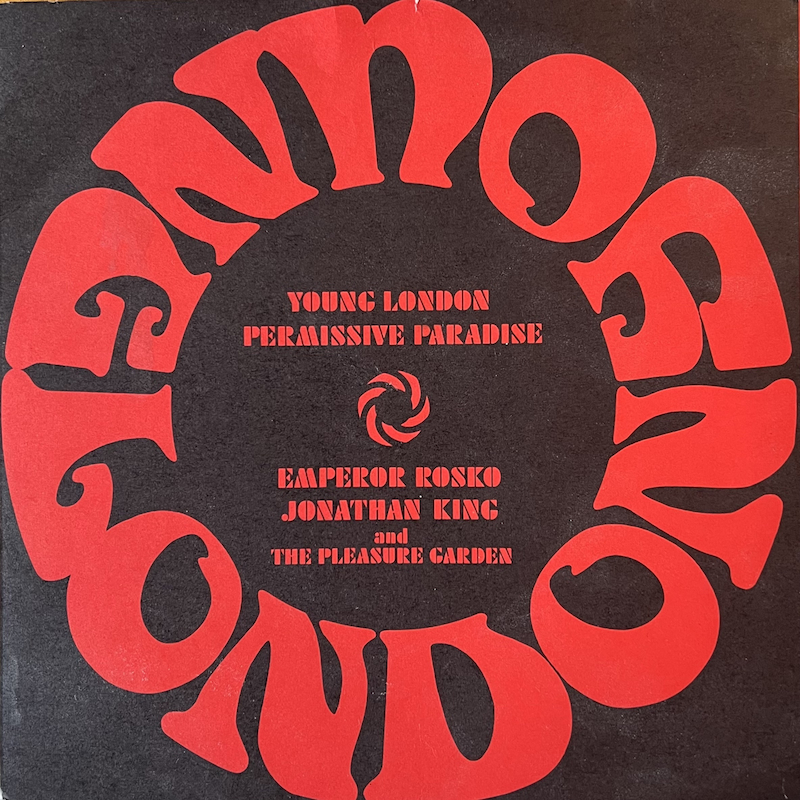
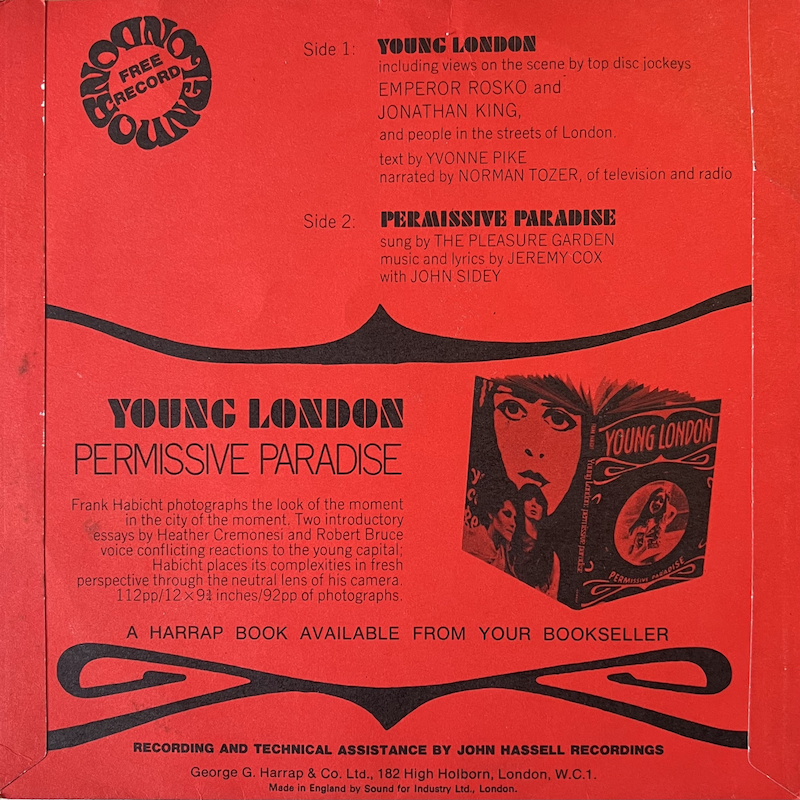
Leave a Reply